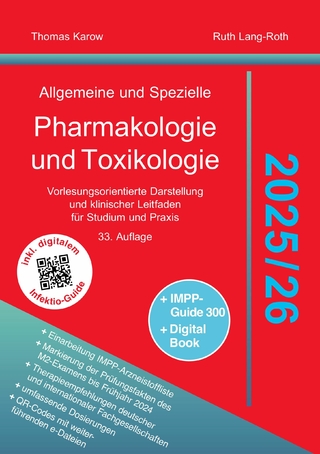
Ketamine
Crc Press Inc (Verlag)
978-1-4665-8339-9 (ISBN)
- Titel z.Zt. nicht lieferbar
- Versandkostenfrei innerhalb Deutschlands
- Auch auf Rechnung
- Verfügbarkeit in der Filiale vor Ort prüfen
- Artikel merken
Providing an exhaustive review of the literature, the book is supplemented by the introduction of new data and research. Topics include:
The pharmacological properties of ketamine
The impact of ketamine on various organ systems, including the central nervous system and the gastrointestinal, respiratory, adrenal, and renal systems
Developmental neurotoxicity in the developing brain
Postmortem toxicology
The epidemiology of misuse and patterns of acute and chronic toxicity
The psychosocial aspects of ketamine addiction
Clinical applications at acceptable doses, including possible contribution to the treatment of depression
The contributions in this book represent an initiative to investigate the different facets of ketamine beyond the known psychosocial factors related to addiction and its traditional use as an anesthetic agent. The broad-based coverage is designed to promote heightened attention on the subject and encourage further research into beneficial clinical uses.
Professor David T. Yew is the professor emeritus of anatomy in the School of Biomedical Sciences, Chinese University of Hong Kong. He has engaged in research of human and animal neuroscience, drug discovery, and drug toxicology, using various techniques of pathology, immunocytochemistry, cytochemistry, and imaging. Professor Yew’s area of specialty is research on neurodegeneration, particularly damage to the nervous system brought about by ketamine abuse, and is now one of the major global leaders in this area.
Ketamine use and misuse—Impacts on the nervous system: An overview. Clinical applications and side effects of ketamine. Diverse pharmacological properties of ketamine. Developmental neurotoxicity of ketamine in the developing brain. Ketamine—Epidemiology of misuse and patterns of acute and chronic toxicity. Imaging the effects of ketamine use and abuse in the brain. Does sniffing drugs affect the respiratory system? An example being ketamine. Long-term ketamine use causes damage to the pancreas and adrenal glands. Ketamine uropathy: Hong Kong experience. Ketamine and the lower urinary tract: Summary of pathophysiological evidence in humans and animal models. Postmortem toxicology of ketamine. The antidepressant effects of ketamine and the underlying mechanisms. Social correlates of ketamine and other psychoactive drug abuse in Hong Kong. Mechanisms of ketamine-induced neuroplasticity: Potential effects on brain and behavior. The influence of ketamine on our understanding of depression. Clinical testing for ketamine: How it inspires the need to develop emerging drugs-of-abuse analysis in a clinical laboratory.
| Zusatzinfo | 20 Tables, black and white; 40 Illustrations, black and white |
|---|---|
| Verlagsort | Bosa Roca |
| Sprache | englisch |
| Maße | 156 x 234 mm |
| Gewicht | 750 g |
| Themenwelt | Geisteswissenschaften ► Psychologie ► Allgemeine Psychologie |
| Geisteswissenschaften ► Psychologie ► Biopsychologie / Neurowissenschaften | |
| Medizin / Pharmazie ► Medizinische Fachgebiete ► Neurologie | |
| Medizin / Pharmazie ► Medizinische Fachgebiete ► Pharmakologie / Pharmakotherapie | |
| Studium ► 2. Studienabschnitt (Klinik) ► Pharmakologie / Toxikologie | |
| Naturwissenschaften ► Biologie ► Biochemie | |
| ISBN-10 | 1-4665-8339-8 / 1466583398 |
| ISBN-13 | 978-1-4665-8339-9 / 9781466583399 |
| Zustand | Neuware |
| Haben Sie eine Frage zum Produkt? |
aus dem Bereich


